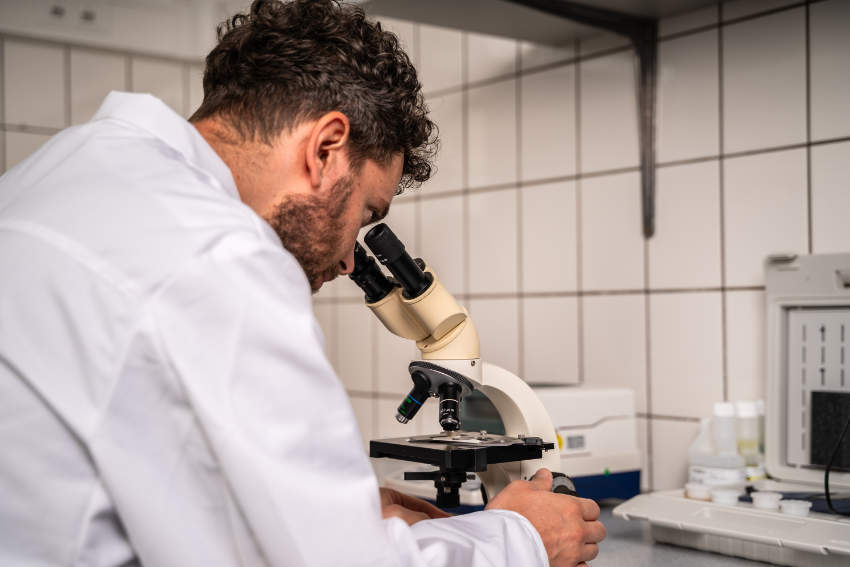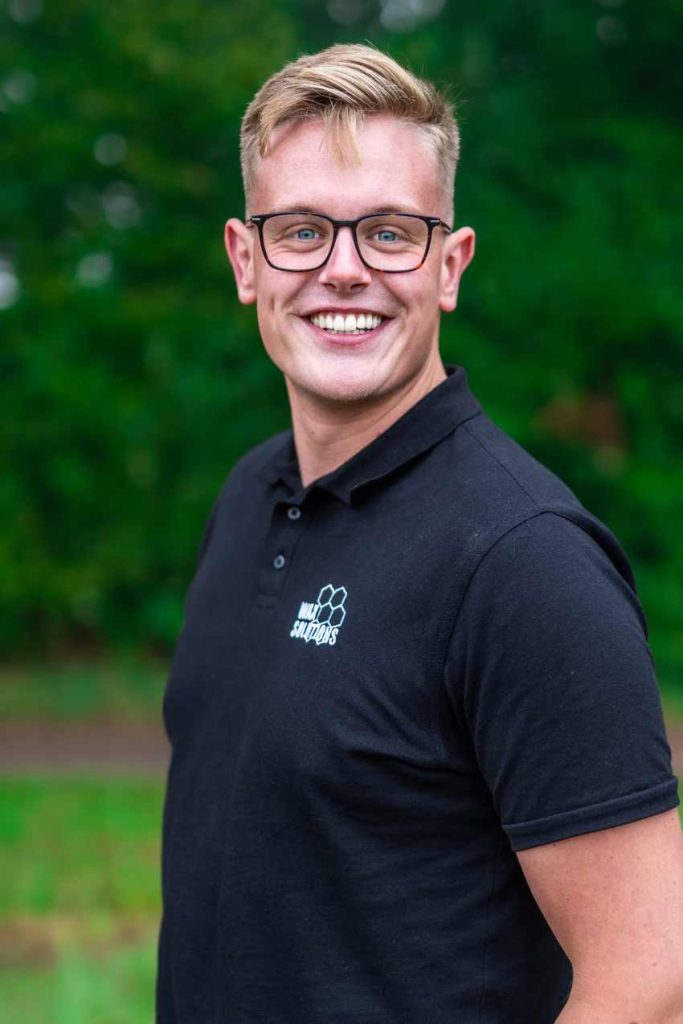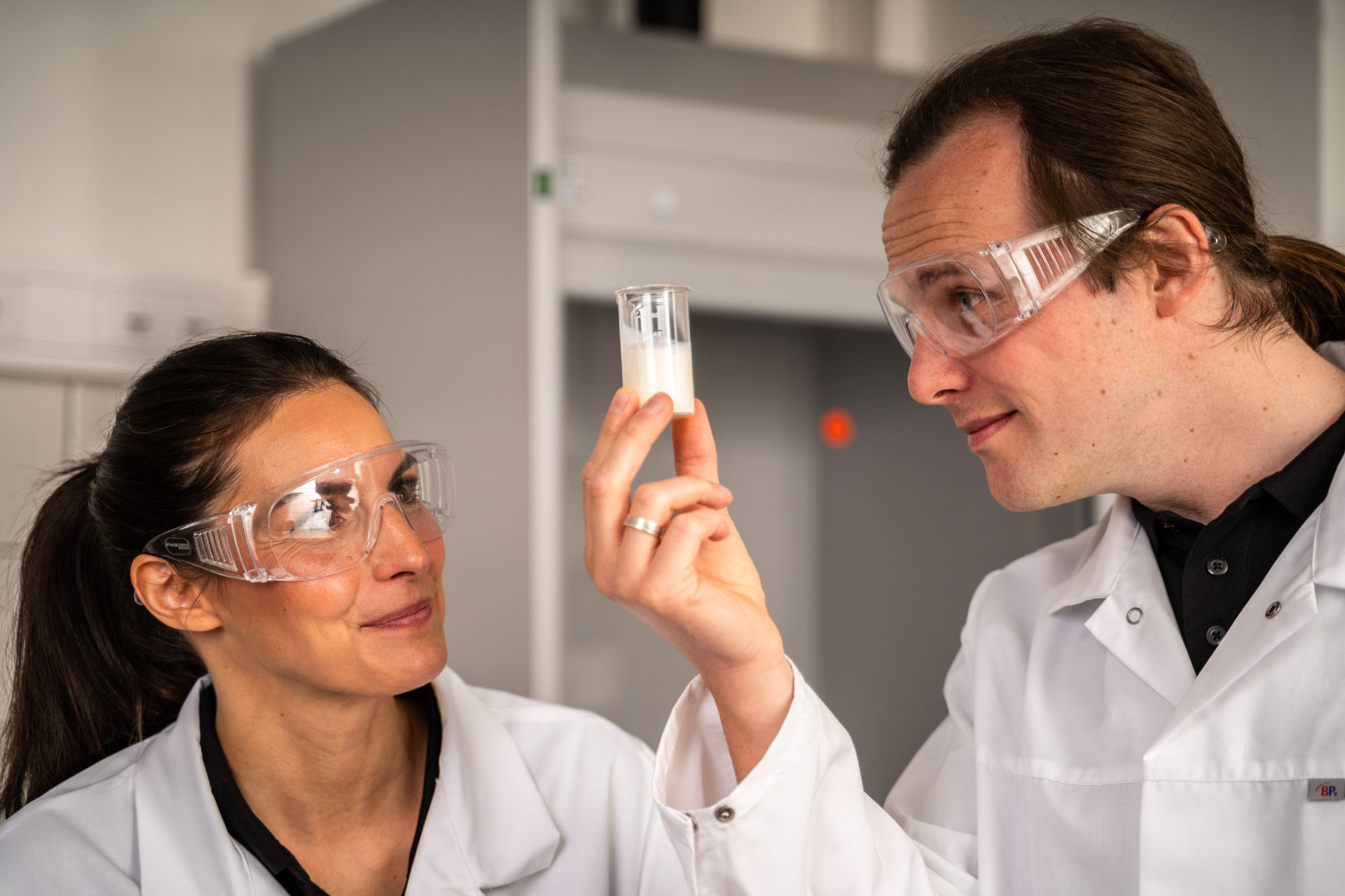Wax Solutions follows a green mission: they replace fossil-based plastics in paper coatings by substituting them with renewable materials. By doing so, Wax Solutions do their part to the planet’s de-fossilisation.
The company develops and supplies biobased, non-fossil, barrier coatings for the paper and packaging industry, converters and printers. They are a spin-off from a German food manufacturer and – although they consider themselves a start-up – Wax Solutions already suppliese industry-scale quantities.
Interview with Henry Spiering, Technical Manager at Wax Solutions.
What are the main areas of activity of the company?
Henry Spiering: Our individualised products focus on fibre-based food and non-food packaging. Our coatings provide barrier characteristics against water, water vapour or grease and enable functionalities that meet our customer’s demand, such as heat sealability for flexible packaging. We develop and supply ready-to-use coatings as well as Booster coatings to enhance the performance of existing solutions. The products are tailor-made and may be applied using existing application technologies for aqueous coatings. All products are furthermore stable in storage and process and allow recyclability of the fibres. Natural, non-fossil, components, like natural waxes, are the base of our formulations – explaining the companies’ name.
Connecting the value chain from raw material producers to retailers of the packaged good is key for us. We solve challenges in joint projects together with participants of the value chain to allow efficient solutions.
What’s the news about new products/services?
H.S: Our products serve a market which is currently evolving. Our barrier coatings are used in flexible packaging papers which are usually coated with fossil-based materials. Our coatings are up to 100 % biobased and therefore form a new market segment within the barrier coatings market. The material is innovative, as it is biobased, plastic-free according to the European Union’s Single Use Plastics Directive and allows the recycling of the coated paper – which is not always the case with conventional barrier coatings.

What are the ranges of products/services?
H.S: We supply various biobased coating solutions, starting from barrier additives which are added to existing coating systems for improved performance and sustainability, up to ready-to-use solutions. Tailor-made solutions are very important to us, as each paper, each application technology and each requirement is individual. We work together with our partners and develop individualised solutions.
What is the state of the market where you are currently active?
H.S: The market is evolving. The industry is looking for fossil-free alternatives and we are amongst the first companies to solve challenges using renewable materials.
What can you tell us about market trends?
H.S: “Biobased” is a huge buzzword in packaging. Brand Owners change from plastic to fibre-based packaging and packaging papers improve their components by making them biobased. We see regulatory changes, such as the “PPWR” – Packaging and Packaging Waste Regulation – by the European Union, which show the need for green solutions in the packaging industry. Yet, few solutions are market-available and we see our opportunity here to be amongst the innovators.

What are the most innovative products/services marketed?
H.S: Our ready-to-use solutions under our brand BaWa® Wrap are our most innovative products. The coatings are biobased up to 100 %, plastic-free and work as drop-in solutions on existing application technologies. Their barriers against water, water vapour and grease are outstanding and they have the chance to change the way packaging papers will be coated in the future.
What estimations do you have for the second half of 2025?
H.S: We as a start-up are in the scaling process. We are about to scale our production significantly and to enter the market with our BaWa® Wrap solutions on a large scale. Furthermore, we are about to start the construction of our pilot plant in Versmold, Germany this year.


